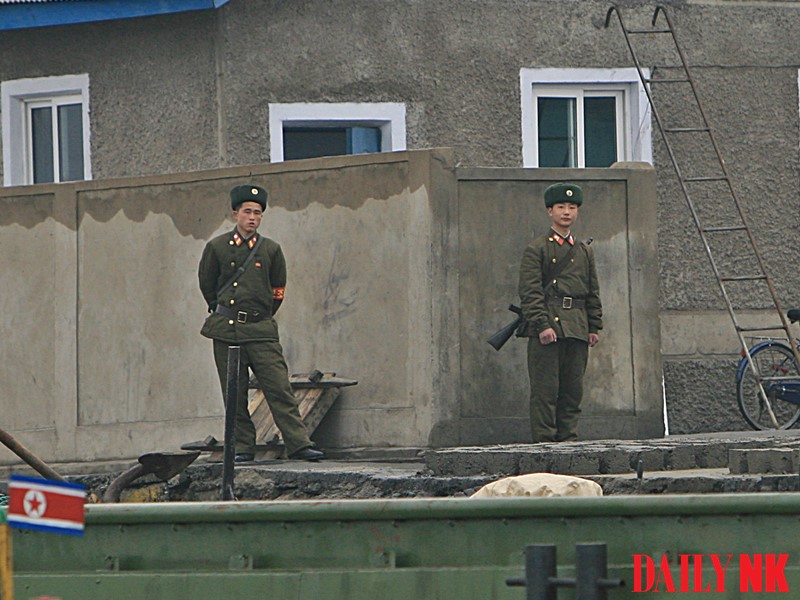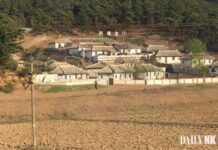
After North Korean leader Kim Jong Un emphasized an end to corruption in his New Year’s Address, orders have reportedly been handed down to the North Korean military regarding crackdowns on corruption. The military, however, is still rife with practices that fulfill the selfish interests and desires of military personnel, and sources report that government efforts to curb corruption are failing to have any real outcomes.
“A warning about military personnel stuffing their own pockets with shipments designated for soldiers was handed down as part of efforts to achieve the goals set out by Kim Jong Un’s New Year’s Address, which declared ‘a war’ on corruption,” said a South Pyongan Province-based source on February 8. “Companies on some military bases were issued with 10 kg Chinese-manufactured electronic scales.”
The electronic scales are intended to ensure that soldiers receive the right amount of rations, and the development appears to be a form of monitoring by the central government to ensure that supplies are being properly distributed.
If the siphoning-off of materials is detected, the authorities will reportedly set up an “ideological struggle response” on-site and hand down either a dishonorable discharge, forced labor or other punishments to perpetrators.
Despite these efforts, however, officers still continue to find clever ways to steal materials. They are siphoning off goods using loopholes in the approach used by the central government authorities to check the weight of the food.
For example, if the central government provides a military base with 100 kg of rice, corrupt officers will switch this over with 100 kg of relatively cheaper corn and beans at the market to feed their troops and take the profit for themselves. The quantity of the food is not the issue; rather, it is that soldiers are being fed lower quality food.
A separate source in North Pyongan Province reported that rice and corn are being switched over at a ratio of 1:2 at the markets and rice and beans at a ratio of 1:2.5. This means that corrupt officers can switch out 100 kg of rice for 200 kg of corn or 250 kg of beans.
The corruption in North Korea’s military has been remarkably resilient in its defiance of efforts by the central authorities to eliminate it.
“To stay healthy, soldiers need to eat 70% corn and 30% rice, along with 3-4 salted radishes,” said the North Pyongan Province-based source, further mentioning that working conditions for the soldiers are very poor.
A separate source in South Pyongan Province added, “Soldiers in the provinces don’t have enough wood to burn for heating, so only the medical ward has heat in the evenings, while the cafeterias, offices and rooms used for education are completely cold.”
“The soldiers eat in temperatures of 20 degrees (Celsius) below zero in the cafeterias, and the drinking water is frozen, so they can’t even rinse their mouths out after eating,” he said.
The 71st anniversary of the founding of the North Korean People’s Army was on February 8, but the country opted not to hold its typical celebrations, such as a central grand rally or military parade. This year’s quiet passing of the anniversary stands in stark contrast to last year, when the country held a massive military parade at Kim Il Sung Square in Pyongyang.
















